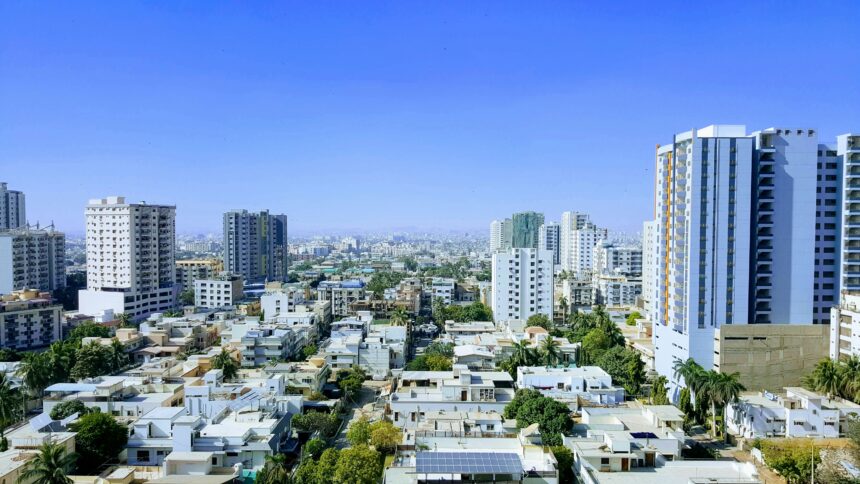Sindh Minister for Local Government and Chairman of the Greater Karachi Regional Plan 2047 Steering Committee, Saeed Ghani, has emphasized that Karachi currently lacks an approved master plan, leading to disorganization in the city. He stated that a master plan is a cornerstone for any city’s development, and the Greater Karachi Regional Plan 2047 will initiate a transformative journey for Karachi, directly benefiting its residents. Ghani shared these remarks while presiding over the inaugural meeting of the Greater Karachi Regional Plan 2047 Steering Committee on Thursday.
The meeting was attended by Karachi Mayor Murtaza Wahab, Additional Chief Secretary Local Government Sindh Waseem Shamshad, Senior Member Board of Revenue Baqaullah Unar, Secretary Planning and Development Sajjad Abbasi, Project Director Muhammad Arshad Khan, Director Generals of SBCA, KDA, MDA, and LDA, representatives of the project’s consultant firms, and other stakeholders.
During the meeting, the project director provided a detailed overview of the efforts made so far for the Greater Karachi Regional Plan 2047. CEOs of the consultant firms also briefed the committee on the progress of Phase One of the project. Saeed Ghani highlighted that the project aims to develop a comprehensive master plan for Karachi under the local government’s supervision, to be implemented by 2047. He emphasized that the absence of an approved master plan has led to chaotic urban development in the city.
Under the Greater Karachi Regional Plan 2047, a master plan will be formulated within the next two years, incorporating input from all stakeholders, civic agencies, and civil society. Ghani emphasized that this plan will serve as a milestone in Karachi’s development, fostering progress that directly impacts the city’s residents. He further noted that the plan will address critical areas such as illegal constructions, water supply, sewerage, health, education, transportation, infrastructure, and commerce, ensuring holistic development.
Karachi Mayor Murtaza Wahab added that the city’s last master plan, which expired in 2017, has not been replaced, resulting in challenges across various sectors and contributing to unplanned urban growth. He expressed optimism that the completion of the Greater Karachi Regional Plan 2047 will enable rapid solutions to infrastructure and public issues. Wahab stressed that the Sindh government and the Local Government Department are committed to involving all stakeholders capable of contributing to the city’s and country’s progress in this ambitious initiative.
The Greater Karachi Regional Plan 2047 promises to chart a sustainable and inclusive path for Karachi’s future, addressing long-standing urban challenges and fostering equitable growth for its residents.


Leave a Reply